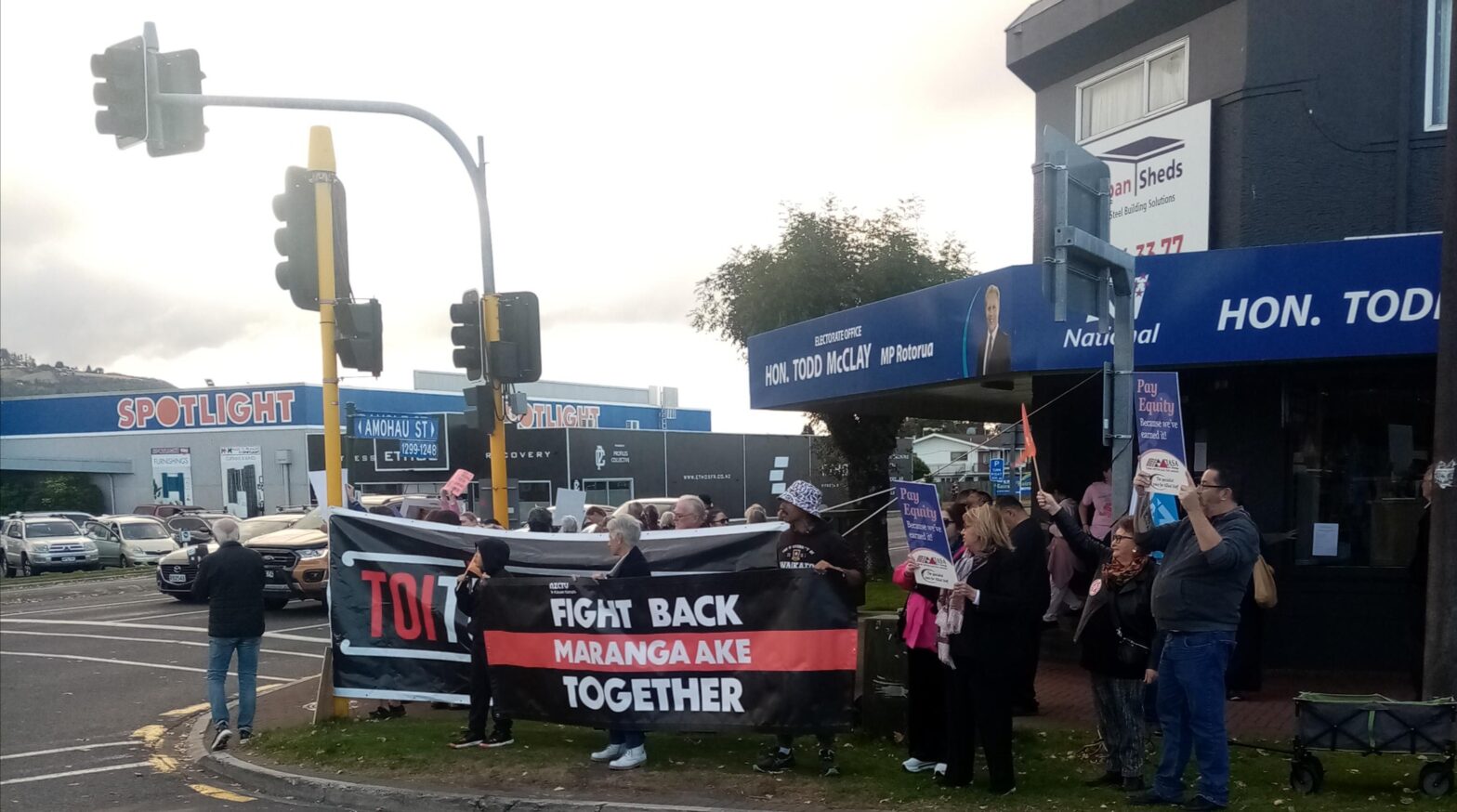Today Aotearoa Workers Solidarity Movement (AWSM) joined nation-wide protests against new legislation reversing pay equity in Aotearoa/New Zealand.
AWSM participated in Rotorua for example, alongside approximately 50 others. The workers in the demonstration came from a range of organizations. There was an impressive variety of ages, ethnicities and genders represented. The protestors occupied the footpath outside the office of the local MP. Many carried placards or union flags and banners. There was a constant stream of support from passing motorists. Some stopped to receive material about the issue, while many honked horns or otherwise signaled their solidarity.
The call to action came in response to the sudden cancelling of pay equity measures by the Right-Wing National/ACT/NZ First coalition government. Existing legislation was built on a series of reforms beginning in 1961 when government workers were required to be paid the same regardless of gender, followed by the same provision for the private sector in 1972.
In 2012 caregiver Kristine Bartlett won the first case ever brought under that law. Though it wasn’t till 2020 that the concept of pay equity became comprehensively incorporated into law via the Equal Pay Amendment Act. The latter legislation required that claims for consideration had to concern work that is or was performed by a workforce of which approximately 60 percent or more members are female. A few factors determined whether such employment had been undervalued, such as whether it had been historically characterized as “women’s work” or done for free. This has massive impact on crucial sectors of employment such as nurses, teachers, care workers, librarians, social workers and te reo Maori experts.
The current move reverses numerous features of the 2020 legislation. For example, the threshold for what constitutes a “predominantly female” field of work is being raised to 70%, so fewer cases will qualify for consideration. This would affect a number of current claims that have taken years to build, that would have to be re-submitted under the new stricter threshold. There are also opt-outs for employers that would not require them to give explanations, such as in the case of multi-employer claims.
The changes were rammed through parliament in a single day. The primary perpetrator being Workplace Minister Brooke van Velden from the viciously anti-worker free market purists of the ACT party. She had previously criticized minimum wage increases and sick leave entitlements for supposedly increasing ‘business uncertainty’. Not surprisingly, part of van Velden’s ideologically driven justification for the current changes centres on reducing public expenditure.
What are the lessons to be drawn from the legal changes and the nation-wide protests? Firstly, the snail-paced speed that even modest reforms are achieved under the current system and conversely the rapidity with which they can be overturned, shows the inadequacy of using parliamentary methods to achieve progress for the working class. One set of politicians must be forced for decades just to obtain basic economic standards for some of the most important and vulnerable workers while other politricks can simply reverse it a single day without meaningful consultation.
Secondly, the participation in protests by a wide range and number of workers, indicates that the working-class are not as passive and compliant as the media sometimes portray us or our masters wish we were. Today’s actions were essentially symbolic and defensive in nature. However, the class-solidarity they showed, indicates the potential for building a wider movement that operates away from the dead-end of parliamentary approaches and empowers all of us to find the strength to build a new society. A new society based on equality and economic democracy.
Pay Equity Protest
